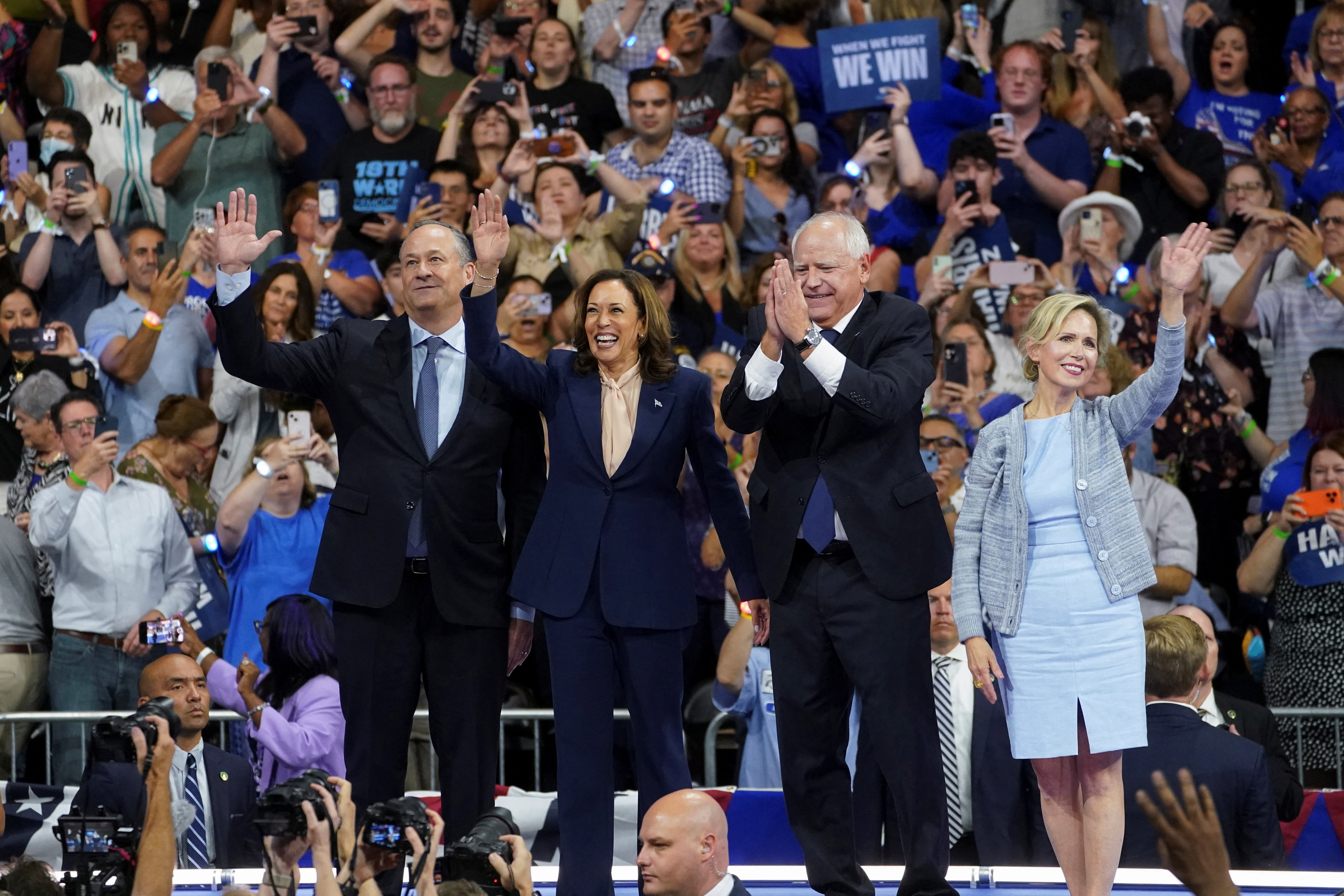Democratic presidential nominee Kamala Harris and her newly selected vice presidential running mate, Minnesota Governor Tim Walz, campaigned for the first time together on Tuesday in Philadelphia, kicking off a multi-day tour of battleground states aimed at introducing Walz to the national stage.
TRUMP, VANCE CALL WALZ 'RADICAL'
Last year, long before his name was on anyone’s lips as a possible vice presidential pick, Minnesota Gov. Tim Walz received huge praise from labor groups for signing what was considered the most pro-worker, pro-family package of legislation enacted by any state in decades.
That legislation called for 12 weeks of paid family and medical leave, banned noncompete clauses, prohibited anti-union captive audience meetings, and created a statewide council to improve conditions for nursing home workers. Not stopping there, the legislation included innovative provisions to protect workers at Amazon and other warehouses from high-speed work quotas and unfair firings.
“Tim Walz has been great,” said Bernie Burnham, president of the Minnesota AFL-CIO. “We’ve loved working with him. He thinks all the time about working people, thinks about families, thinks about children. We’re very excited to share him with everybody else.”
When it comes to workplace policies, Walz has also won plaudits from parents’ groups, women’s groups, and organizations promoting work-family balance—and not just for Minnesota’s new paid family and medical leave law. Working with the Democratic-controlled state Legislature, Walz signed laws that provide free breakfast and lunch to all public school students and give working families one of the nation’s most generous child tax credits—an average credit of $1,244 per child to more than 400,000 children.
“While J.D. Vance insults women for not having kids, Tim Walz is making it easier for adults to have kids,” said Jake Schwitzer, executive director of North Star Policy Action, a St. Paul–based think tank. “Our whole focus is on policies that help working people and working families. By that measure, Tim Walz has been an absolutely fantastic governor.”
Walz has long been a member of Minnesota’s Democratic-Farmer-Labor Party, and he clearly takes the “labor” part of that name seriously. Last October, during a six-week strike by the United Auto Workers, Walz joined the picket line at a Stellantis auto parts plant in Plymouth, Minnesota.
On Tuesday morning, Shawn Fain, the UAW’s president, and many other labor leaders were quick to applaud Kamala Harris’ selection of Walz as her running mate. “He’s stood with the working class every step of the way, and has walked the walk, including on a UAW picket line last fall,” Fain said in a statement.
Walz was a high school teacher for more than a decade in Mankato (also coaching his school’s football team to a state title), and in that job, he belonged to the teachers union, Education Minnesota. Though he left the classroom years ago, he hasn’t forgotten teachers’ concerns, signing a law that expands teachers’ collective bargaining rights so they can negotiate over the educator-to-student ratio in classrooms.
“Governor Walz isn’t only an ally to the labor movement, but also our union brother with a deep commitment to a pro-worker agenda,” said Liz Shuler, president of the AFL-CIO, the nation’s main labor federation.
After Democrats won control of both houses of Minnesota’s state Legislature in November 2022, Walz and the Legislature moved boldly to enact a broad pro-worker agenda. Their legislative push included giving workers up to six paid “sick and safe” days a year that can be used to recover from an illness, go to counseling, or seek services for domestic abuse or sexual assault. Walz signed a $2.6 billion infrastructure bill, the largest in Minnesota’s history. At a time when many union leaders say they want industrywide sectoral bargaining, Walz signed a law that creates a statewide “standards board” to set minimum pay and benefits for workers at all nursing homes in Minnesota.
Aaron Sojourner, a Minneapolis-based labor economist for the Upjohn Institute, lauded Walz for taking innovative approaches to worker issues—he pointed to a year-old Minnesota law that holds real estate developers and general contractors liable when their subcontractors steal their workers’ wages, perhaps by refusing to pay them for a week they worked.
Last year’s pro-worker legislative package included a requirement that Amazon and other warehouse operators tell employees what their work quotas and individual productivity numbers are, so worker groups can determine whether the quotas are onerous and likely to cause injuries and to help prevent unjustified firings.
Noting the increased use of A.I. and other technologies to monitor workers, Sojourner said, “Walz and the Legislature targeted big distribution warehouses to try to improve worker safety and give workers more transparency in how they’re being managed and disciplined. You can manage people algorithmically and monitor them, but with this legislation, you now have to tell people what you’re doing. You just can’t make it up. I think this is really cutting edge.”
Walz angered union leaders in May 2023 when he vetoed a bill that would have increased pay and job security for Uber and Lyft drivers. Uber had threatened to end service in much of Minnesota if Walz signed the bill—a threat that caused many disabled Minnesotans who rely on e-hail drivers to oppose the legislation. While vetoing the bill, Walz announced he was commissioning a study of the drivers’ working conditions. A commission came up with compromise legislation that raises driver pay by 20 percent a month, and Uber, Lyft, Republicans, and Democrats all agreed to it.
“That’s a good example of Walz not being knee-jerk, of designing good, inclusive sensible policies,” Sojourner said.
With progressive, pro-worker, pro-union policies like these, it is not surprising that the Trump campaign is calling Walz “dangerously liberal.” But Schwitzer of North Star Policy Action defended the Minnesota governor, saying, “Level whatever label you want, Tim Walz cares about putting workers first, and he has put the full force of the Minnesota government behind working people. I call that giving a damn about workers.”

.webp)
